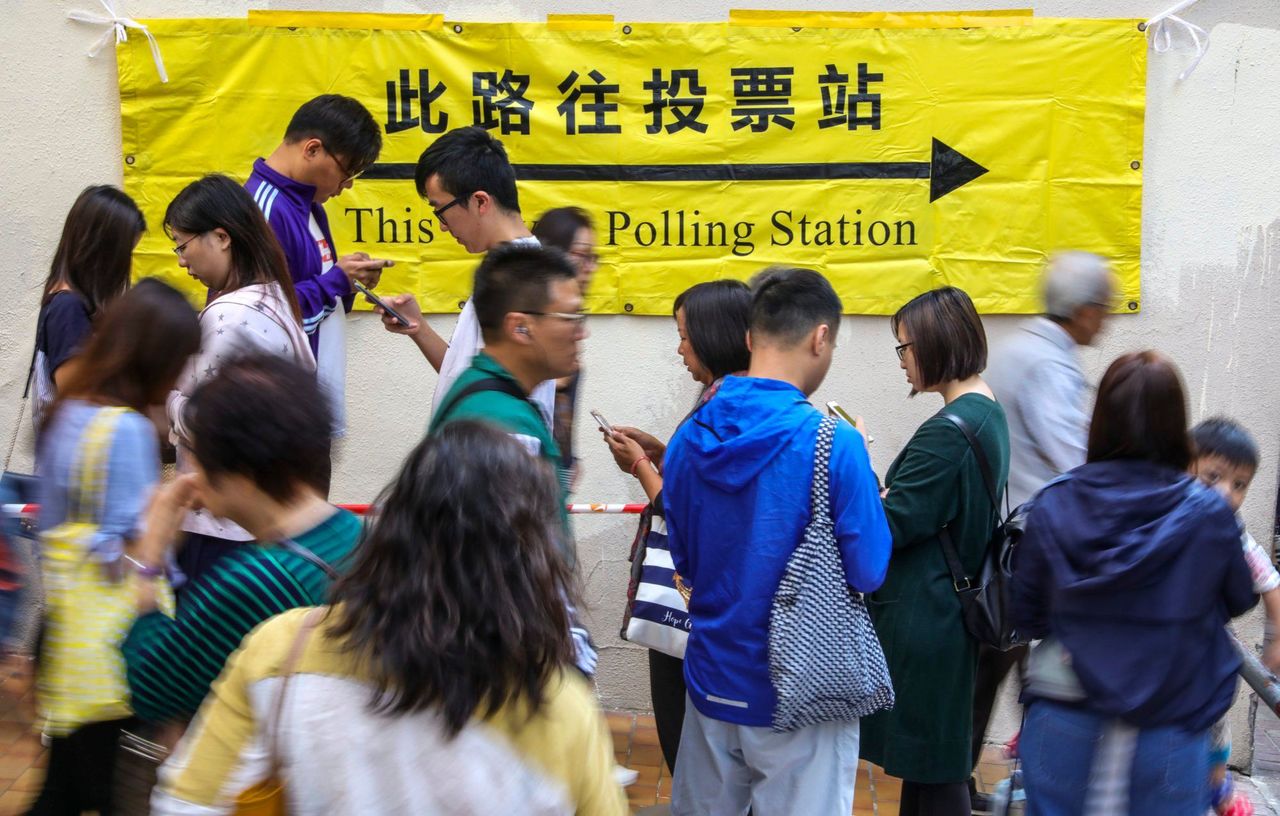Hong Kong News

‘Only 20 per cent of Hong Kong district council seats’ to be directly elected
Only 20 per cent of the seats in Hong Kong’s revamped district councils will be directly elected by the public under a stricter-than-expected government proposal that aimed at “depoliticising” the municipal-level bodies, the Post has learned.
The proposed overhaul is expected to be scrutinised by the Executive Council, the city’s key decision-making body, on Tuesday and potentially announced on the same day.
A source on Monday said only one-fifth of all district council seats would be elected by residents under the proposal, with the rest to be either appointed by the government or selected by committees staffed by hundreds of pro-establishment figures.
The proportion of directly elected seats under the most recent iteration of the proposal would be less than the previously suggested 30 per cent.
The Post earlier learned that the number of constituencies could be slashed from 452 to 71, with a source saying the government planned to redraw boundaries to align them with those of the 71 area committees filled by government-appointed members.
Under the plan, each constituency could field two popularly elected representatives. Some analysts have said the move aimed to contain the opposition camp’s influence as it was unlikely political parties would win both seats in the same area.
Last Tuesday, Hong Kong Chief Executive John Lee Ka-chiu said future district councils would be comprised solely of “patriots” to prevent them from becoming hotbeds for pro-independence elements, arguing the municipal-level bodies should be “depoliticised” and administrative-led.
He said “a certain number of seats” would be chosen by public election, but had stopped short of revealing how many.
 Only 20 per cent of the seats in Hong Kong’s revamped district councils
will be directly elected by the public, a source has said.
Only 20 per cent of the seats in Hong Kong’s revamped district councils
will be directly elected by the public, a source has said.
Lee had also accused opposition camp district councillors elected by the last poll in 2019 of wrongdoings, such as going against the government, insulting officials and causing disruptions to councils’ conventions of meetings.
“It was blatantly unacceptable because they were behaving in such a way that advocated Hong Kong’s independence,” he added.
The opposition camp secured 392 of the 452 spots available on the city’s 18 district councils in 2019 under a “single-seat, single-vote”, or a small constituency, system. Only 27 seats were filled by appointment.
Tensions between district councils and officials intensified after the new representatives took office in 2020, with many incumbents from the opposition camp pledging to look beyond the bread-and-butter issues and champion causes dear to anti-government demonstrators.
Authorities later in the same year issued an internal circular requiring officials to walk out of the meetings if district councillors used offensive or insulting language at meetings or displayed slogans that violated the Beijing-imposed national security law.
Currently, two-thirds of those elected in the 2019 poll have either been disqualified or resigned over legal concerns in the past two years as the government required them to swear to uphold the Basic Law, the city’s mini-constitution, and pledge allegiance under the national security law.
In 2021, government sources told several media outlets that disqualified district councillors could have been made to repay every dollar of their salaries and operating allowances received since taking office – as much as HK$2 million (US$257,500) per person.
The news prompted more than 210 councillors to resign, with many citing bankruptcy fears or investigations against them under the security legislation. Some also opted to leave the city.
Another 49 were ousted after the government deemed their oaths of allegiance to be “invalid”.
The next council elections are expected to be held later this year as the current term will wrap up in December.











